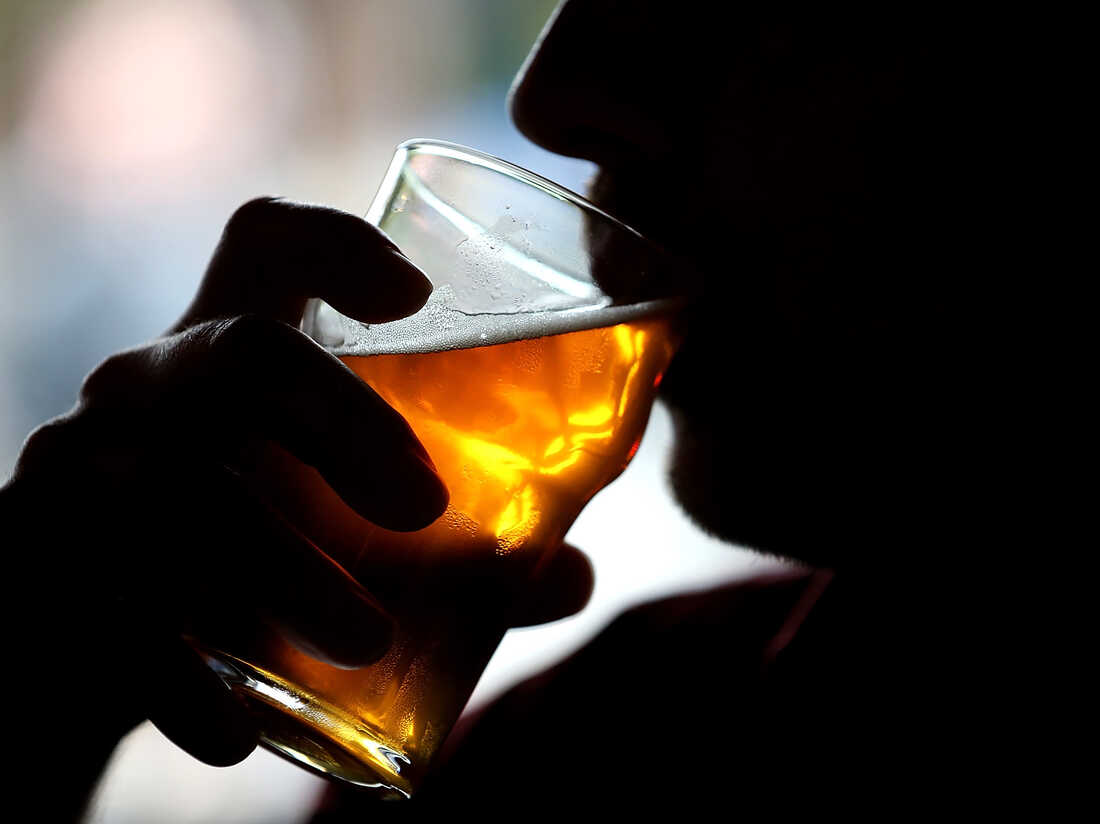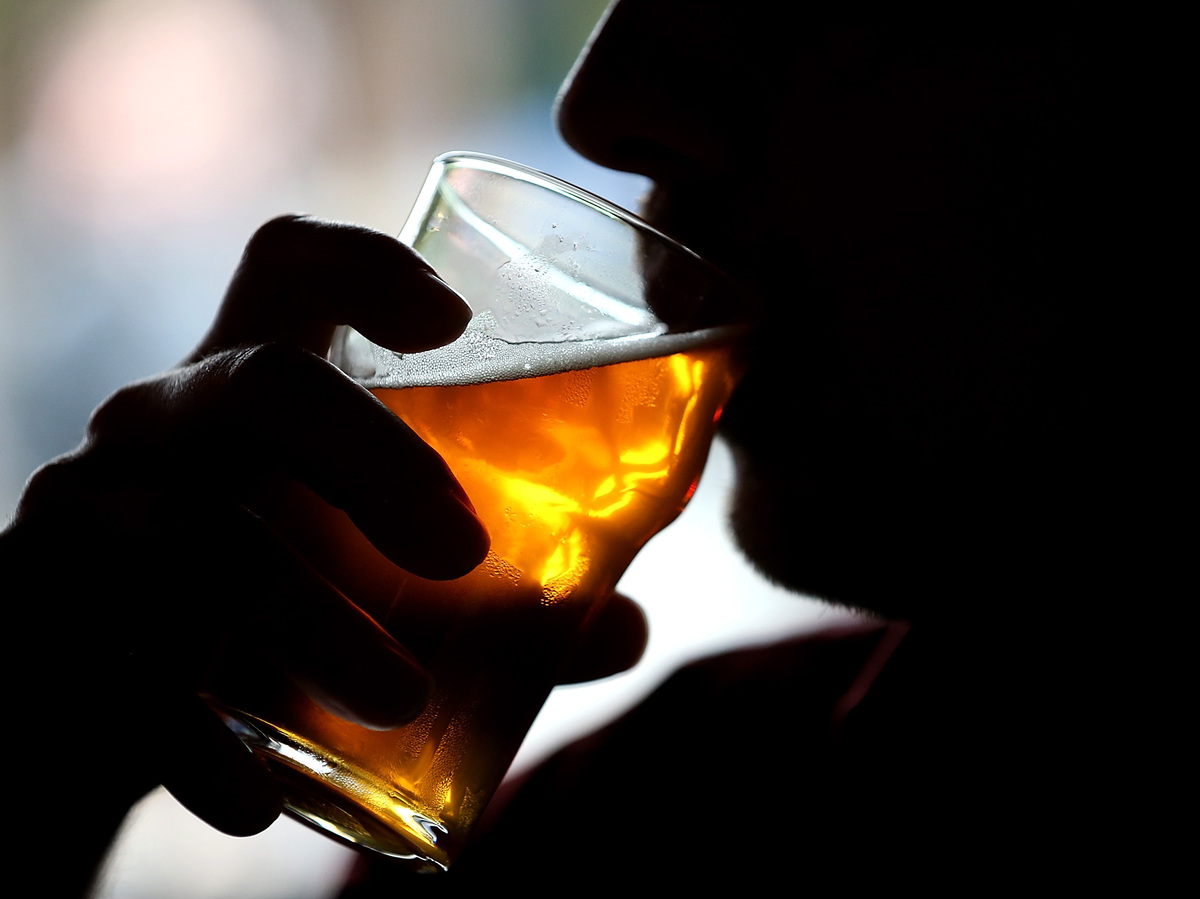
Enlarge this image
A new study looks for associations between changes in alcohol consumption and the risk of dementia, in research that is based on nearly 4 million people in South Korea. Justin Sullivan/Getty Images hide caption
toggle caption Justin Sullivan/Getty Images
A new study looks for associations between changes in alcohol consumption and the risk of dementia, in research that is based on nearly 4 million people in South Korea.
Justin Sullivan/Getty ImagesIf you're worried that drinking alcohol could raise the risk of dementia as you get older, a large new study from South Korea can provide some insights. That starts with the idea that in general, cutting down on alcohol is a good idea.
"Maintaining mild to moderate alcohol consumption is associated with a decreased risk of dementia, whereas heavier drinking increases the risk of dementia," the study's first author, Dr. Keun Hye Jeon, told NPR.

Food This drinks festival doesn't have alcohol. That's why hundreds of people came
One part of the study's conclusions seems to have surprised many people: It found that while dropping from heavy to moderate alcohol consumption lowered the risk of dementia, so did the "initiation of mild drinking."
Study sees a complex interaction of alcohol and health"Those who drink alcohol within the recommended guidelines are not advised to stop on the grounds of reducing the risk of dementia," Jeon said, "although cutting back on alcohol consumption may bring other health benefits."
Compared to people who didn't change their alcohol habits, Jeon and her colleagues found that two groups showed a heightened risk of dementia: drinkers who increased their consumption, and people who quit altogether.
"Quitters from any level of alcohol consumption showed higher risk of all-cause dementia compared with those who sustained the same level of drinking," according to the research paper.
Much has been made of that aspect of the findings, as people try to parse whether it might represent a true cause and effect — and a possible new data point in their own decisions about drinking. But the researchers warn that the higher dementia risks of people who quit drinking in their study "are suspected to be primarily attributed to the sick quitter effect, which is defined as a person quitting (or reducing) a certain hazardous activity because of health issues."
In other words, they may have quit drinking because their health worsened, rather than their health worsening because they quit drinking.
So, what can drinkers do to limit their risk of dementia?When asked what surprised researchers the most in the results, Jeon says it's the steep drop in risk when people cut back on alcohol, noting that heavy drinkers who moderated their intake were associated with an 8% decrease in risk for dementia from all causes, and a 12% decreased risk of Alzheimer's disease.
"For the prevention of dementia, mild-to-moderate drinkers need to curb the increase in their alcohol consumption, while heavy drinkers should reduce it," said Jeon, an assistant professor of family medicine at CHA University in Gumi.
"People who do not currently drink alcohol should not be encouraged to start as a way to reduce dementia risk," she added.
Alcohol is known to damage brain cells and impair memory and other functions. Current U.S. dietary guidelines urge adults to "drink in moderation by limiting intake to 2 drinks or less in a day for men and 1 drink or less in a day for women."
A key takeaway from the study, the researchers say, is that it suggests that even small reductions in alcohol consumption can help reduce dementia risk.
The study included millions of adultsTo look for potential associations between alcohol use and dementia outcomes, the researchers drew on data from the Korean National Health Insurance Service. The government-administered insurer offers free biennial health exams to every insured person age 40 and over.









